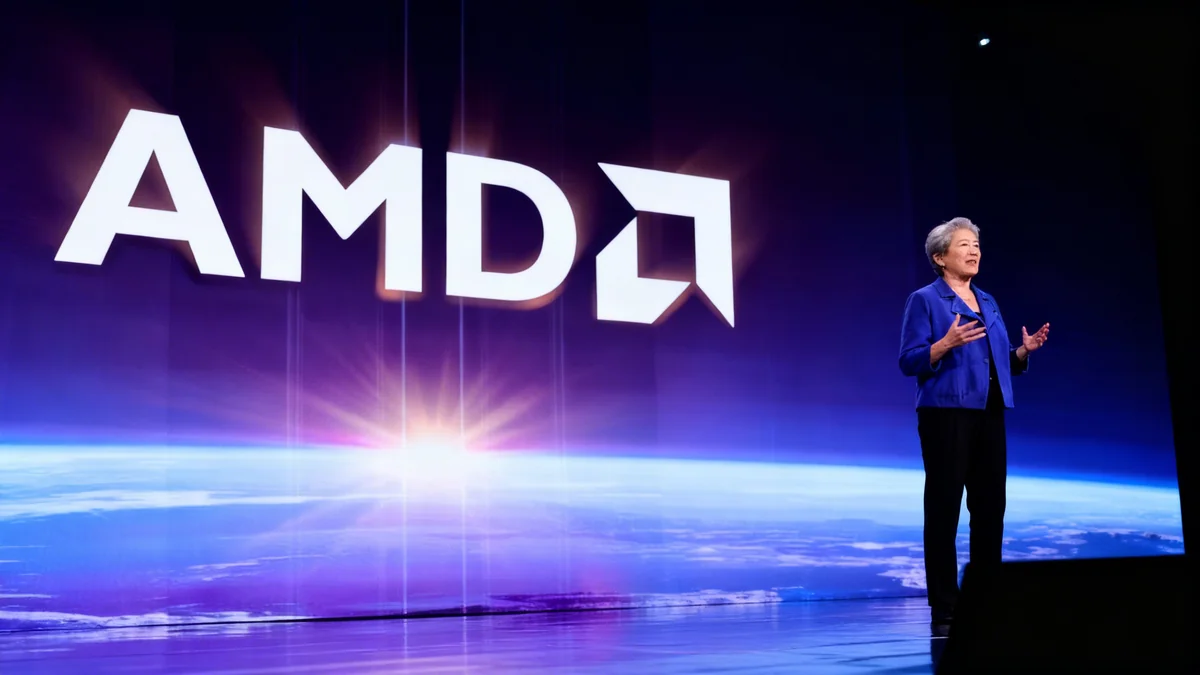Corporate leaders are increasingly naming one specific company in their earnings calls, and it's not just a trend—it's a market-moving strategy. That company is OpenAI. Its growing influence is reshaping investor sentiment and sending stock prices of its partners soaring, establishing it as a powerful new force in the financial world.
Key Takeaways
- Mentions of "OpenAI" on major corporate earnings calls have surged, reaching 31 this quarter so far.
- Partnerships with OpenAI have caused immediate stock price increases for companies like Oracle, Nvidia, AMD, and Broadcom.
- CEO Sam Altman stated OpenAI has committed to spending approximately $1.4 trillion on infrastructure.
- Anticipation for a potential OpenAI IPO is high on Wall Street, though it may be two years away.
The OpenAI Effect on Corporate Valuations
In today's market, a partnership with OpenAI has become a powerful catalyst for investor confidence. Over the past two months, this phenomenon has played out multiple times. When major technology firms announce collaborations with the creator of ChatGPT, their stock prices often react immediately and positively.
Companies like Oracle, Nvidia, AMD, and Broadcom have all experienced significant share price jumps following announcements of OpenAI-related deals. This pattern demonstrates a clear trend: an association with OpenAI is now viewed by investors as a strong indicator of future growth and innovation. The market is rewarding not just those who are in the AI space, but specifically those aligned with its current leader.
From General Trend to Specific Driver
For several quarters, "AI" has been a dominant buzzword in corporate reporting. However, the conversation is shifting. While the general term "AI" was mentioned 228 times this earnings season for companies valued over $10 billion, the specific mention of "OpenAI" is a newer, more potent signal to investors.
This shift signifies that the market is maturing. Investors are no longer just looking for generic AI strategies; they are looking for concrete partnerships with the companies perceived to be at the forefront of the technology. OpenAI sits at the center of this ecosystem, influencing not just technology development but also the flow of capital.
A Name That Dominates the Conversation
The increasing frequency of OpenAI's name in financial discussions is a clear measure of its rising dominance. An analysis of earnings call transcripts this quarter revealed 31 specific mentions of OpenAI. This number, while smaller than the overall mentions of AI, is significant because of its targeted impact.
These mentions are not casual name-drops. They are strategic references intended to signal to the market that a company is deeply integrated into the most advanced AI developments. This strategy highlights OpenAI's central role in the plans of some of the largest companies powering the S&P 500.
By the Numbers: In the last two months alone, four separate announcements of OpenAI partnerships led to significant, positive stock movements for the companies involved, solidifying the "OpenAI effect" on Wall Street.
The focus on OpenAI suggests that the company has become a benchmark for AI progress. Its brand now carries an implicit endorsement of technological credibility, which investors are quick to recognize and reward.
The Trillion-Dollar Ambition
OpenAI's influence is backed by massive infrastructure investment plans. CEO Sam Altman recently clarified the scale of the company's ambitions, stating that OpenAI has committed to spending approximately $1.4 trillion on infrastructure. This enormous sum is aimed at building out the necessary data center capacity to power its future models.
This level of spending, which equates to roughly 30 gigawatts of data center capacity, puts into perspective the various announcements OpenAI has made with its partners in the chip, data center, and financing sectors. It is a long-term vision that requires collaboration with the biggest names in technology hardware and cloud computing.
"We view this as a necessary investment to build the kind of powerful, general-purpose AI we're aiming for," a source familiar with the company's strategy noted. "The computational requirements are immense, and securing that foundation is the top priority."
This massive capital commitment underscores why partnerships are so critical. OpenAI cannot build this future alone, making its choice of partners a key factor in the tech industry's future landscape and, by extension, a major signal to investors.
Wall Street Awaits a Potential IPO
With its growing market influence and enormous capital needs, the question of an Initial Public Offering (IPO) looms large. While an OpenAI stock offering is likely not imminent—potentially two years away—the prospect is already generating significant excitement on Wall Street.
An OpenAI IPO could trigger a financial event with few modern precedents. Given the company's central role in the AI revolution, investor demand would likely be unprecedented. The necessity for such a move is driven by the company's immense spending plans. Funding a $1.4 trillion infrastructure buildout will require access to public markets.
For now, the company remains private, but its every move is watched with the intensity typically reserved for the largest public corporations. Its influence as a market kingmaker continues to grow, shaping fortunes and defining the next era of technological investment long before it ever rings the opening bell on a stock exchange.





